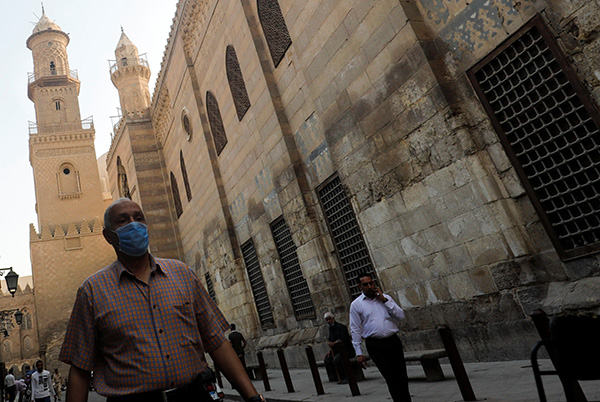
By Engy Magdy, Special to The Tablet
CAIRO — In 2016, an Egyptian court sentenced four Coptic Christian teenagers to five years in prison after they appeared in a 32-second video mocking ISIS, which authorities said was an insult to Islam.
The boys fled the country to seek asylum in Switzerland after the court didn’t impose a travel ban. The case was one of the many blasphemy cases in Egypt where people face prison for offering an opinion or perspective of Islam contrary to the
Sunni doctrine of Al Azhar.
Article 98 of Egypt’s penal code, known as “contempt of religions,” is being used as a blasphemy law by prosecutors and judges in Egypt against those who are accused of sedition, contempt for the divine religions (Abrahamic religions), or harm to national unity and social peace. Jail terms can range from six months to five years.
The law is supposed to be applied against those accused of contempt of Islam, but it’s used against someone as revenge in many cases. Such is the case of a Coptic Christian teacher in the Luxor Governorate, according to Ishak Ibrahim, a researcher and advocate at the Egyptian Initiative for Personal Rights (EIPR), who spoke to the Tablet about the case of Demiana Abd El Noor.
Six years ago, Ms. Abd El Noor faced one year in prison, and a fine of 100,000 Egyptian pounds ($6,370), after the parents of three students accused her of insulting Islam and proselytizing Christianity to the students.
“The whole thing was a lie … Some Salafis incited the Muslim students to tell such a lie,” Ibrahim said.
EIPR reported more than 30 cases in 2016, mostly against religious minorities, charging contempt of religions and insulting the divine. In 2020, courts in Egypt sentenced seven defendants in five separate cases of blasphemy.
According to The Tahrir Institute for Middle East Policy, there are Christians and Shiites among the defendants. Ibrahim said many cases are unknown because the families of defendants keep silent out of fear of retaliation.
“Such cases affect everyone, Christians, Atheists, Shiites, and Muslims of different sects,” Ibrahim said. “In Egypt, you have to think carefully about your words.”
